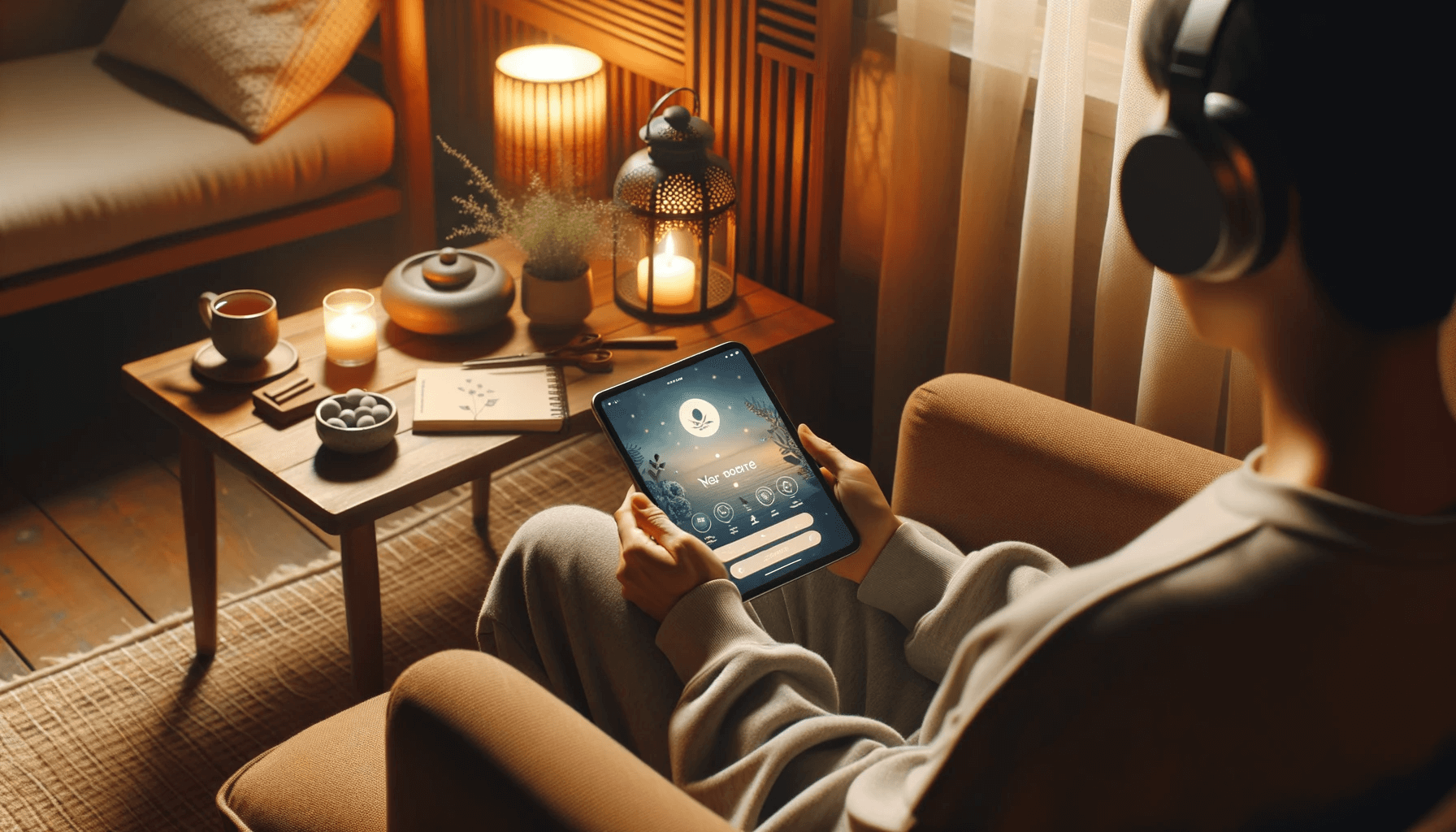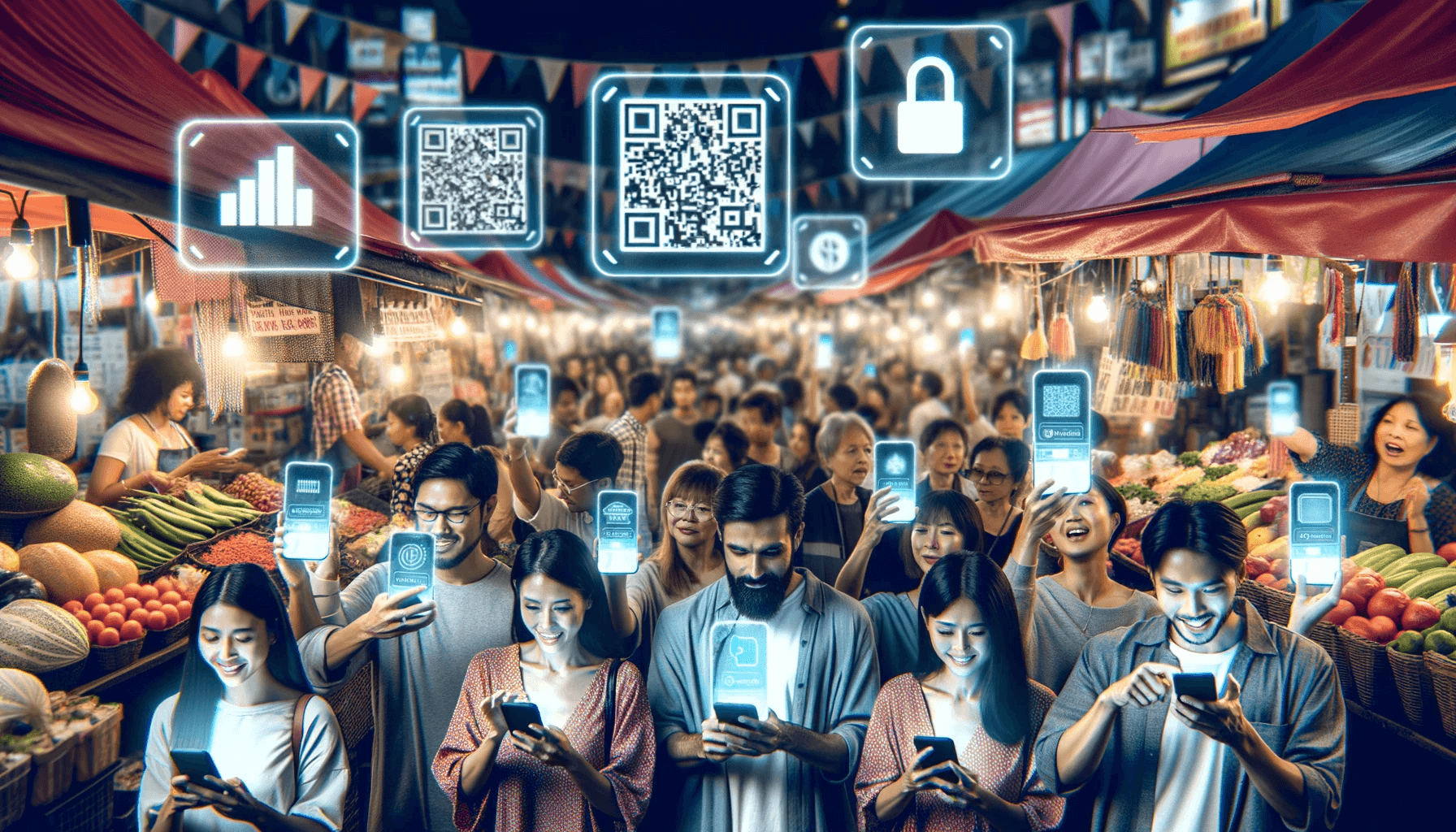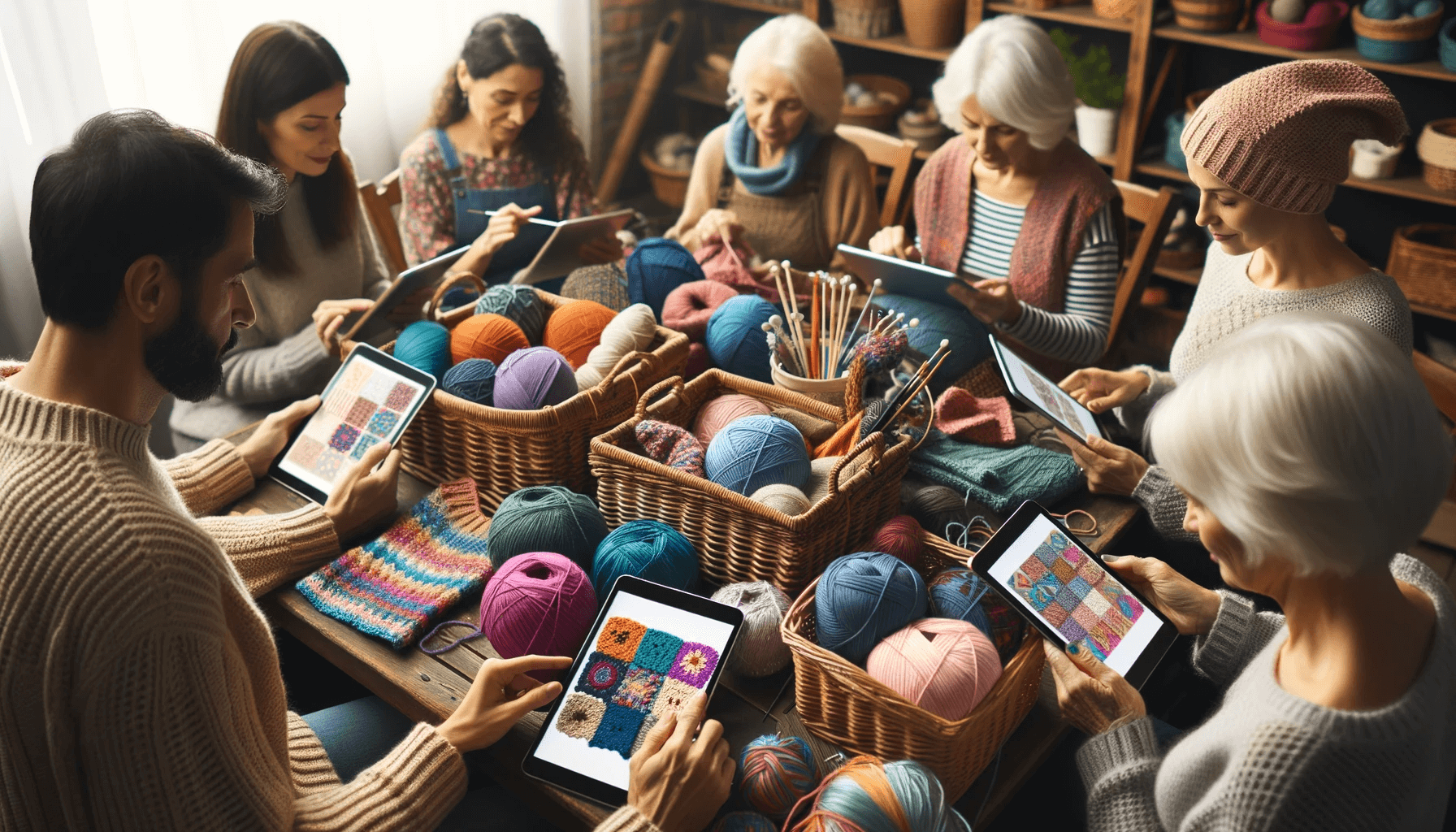Mobile apps have become increasingly prevalent in various aspects of our lives, including mental health therapies. With the advancement of technology, these apps have proven to be valuable tools in promoting mental well-being and supporting individuals in managing their mental health. The benefits of mobile apps in mental health are wide-ranging, offering accessibility and convenience, personalization and customization, increased engagement and motivation, as well as privacy and confidentiality.
There are different types of mobile apps available for mental health support, each catering to specific needs. This includes meditation and mindfulness apps, mood tracking and journaling apps, cognitive-behavioral therapy (CBT) apps, stress and anxiety management apps, and sleep tracking and insomnia apps. These apps offer a variety of features and techniques to assist individuals in better understanding and managing their mental health.
Mobile apps are integrated into mental health therapies in various ways. They can serve as supplemental tools for traditional therapies, providing users with resources and exercises to complement their in-person sessions. These apps can function as standalone self-help resources, offering guidance and support for individuals who prefer to navigate their mental health journey independently. Virtual therapy and telehealth platforms have also emerged, allowing individuals to access therapy sessions remotely through mobile apps. Furthermore, mobile apps foster peer support and online communities, enabling users to connect with others who may share similar experiences and provide mutual support.
However, with the vast number of mental health apps available, it is crucial to evaluate and choose reliable options. Researching app credibility and developer background, checking app user reviews and ratings, assessing app features and security measures, and seeking recommendations from mental health professionals are essential steps in ensuring the effectiveness and safety of a mental health app.
The integration of mobile apps into mental health therapies has revolutionized the accessibility and availability of mental health support. These apps provide individuals with valuable tools and resources to aid them in their mental well-being, making mental health support more adaptable, personalized, and convenient.
Key Takeaways:
- Mobile apps enhance accessibility and convenience: With mobile apps, mental health support is available anytime and anywhere, making therapy more accessible and convenient for individuals.
- Personalization fosters effective therapy: Mobile apps provide personalized and customizable features that cater to individual needs, helping to create a more effective and tailored therapy experience.
- Mobile apps promote increased engagement and motivation: Interactive features and gamification elements in mental health apps encourage users to stay engaged and motivated, facilitating better mental health outcomes.
The Benefits of Mobile Apps in Mental Health
Unlocking the power of mental health therapy lies in the palm of our hands. In this section, we discover how mobile apps are revolutionizing the way we approach mental well-being. From the wide range of benefits offered, including accessibility, personalization, increased engagement, and privacy, these apps pave the path to a healthier mind. So fasten your seatbelts as we embark on a journey exploring the incredible impact of mobile apps on modern mental health therapies.
1. Accessibility and Convenience
Accessibility and convenience are the key benefits of incorporating mobile apps into mental health therapies. These apps provide 24/7 availability, allowing individuals to seek support whenever they need it. Moreover, they are convenient and portable, as they can be easily accessed from smartphones or tablets. This makes therapy sessions and self-help resources highly portable.
With mobile apps, therapy sessions can be scheduled at a time and place that is convenient for the individual, eliminating the need for in-person appointments. Additionally, these apps enable remote support, allowing individuals to receive therapy and support from the comfort of their own homes.
Furthermore, mobile apps promote increased engagement by being interactive and user-friendly. This encourages individuals to actively participate in their mental health journey.
In a similar tone, it is worth noting the history of the mobile app revolution. The introduction of smartphones and app stores in the late 2000s paved the way for the rapid development and integration of mobile apps into various industries, including mental healthcare. This technological advancement has revolutionized the accessibility and convenience of mental health therapies, significantly improving support and resources for individuals seeking mental well-being.
2. Personalization and Customization
Personalization and customization are key features of mobile apps in mental health, allowing individuals to tailor their therapy experience to their specific needs and preferences.
- Customizable settings: Apps offer options to adjust preferences such as font size, color schemes, and notification settings, ensuring a personalized visual and auditory experience.
- Goal setting: Users can set specific goals related to their mental health and track progress over time, providing a sense of accomplishment and motivation.
- Content selection: Apps offer a range of therapy techniques, allowing users to choose the ones that resonate with them the most, whether it’s mindfulness exercises, cognitive-behavioral therapy, or stress management techniques.
Considering the individuality of mental health experiences, personalization and customization features empower users to engage in therapy in a way that feels most meaningful and effective for them.
3. Increased Engagement and Motivation
- Increased engagement and motivation are the primary benefits of using mobile apps in mental health therapy.
- These apps provide interactive tools and features that actively engage users in their mental health journey, leading to a sense of motivation and empowerment.
- One way in which mobile apps boost engagement and motivation is through goal setting. Users can set personalized goals, track their progress, and celebrate achievements, which helps in boosting their motivation levels.
- Additionally, mobile apps offer various interactive activities like quizzes, games, and guided meditations, making therapy more engaging and enjoyable for users.
- Moreover, apps send notifications and reminders for therapy sessions, medication, or self-care activities, contributing to users staying motivated and on track.
- Reward systems are another feature incorporated by apps, providing users with incentives for completing tasks or reaching milestones. This fosters motivation to continue using the app.
- Furthermore, some apps create a sense of community by connecting users with peers or mental health professionals, offering support and encouragement. This community support plays a vital role in maintaining engagement and motivation levels.
4. Privacy and Confidentiality
Privacy and confidentiality are paramount when it comes to utilizing mobile apps for mental health. Here is a table that showcases the significance of privacy and confidentiality in mental health apps:
| Data Protection Measures | Importance |
|---|---|
| Encryption | Ensures that sensitive user data is secure and protected from unauthorized access. |
| Anonymity | Allows users to maintain their privacy by using pseudonyms or avoiding the disclosure of personal identifying information. |
| User Consent | Ensures that users are aware of how their data will be collected, used, and shared, and gives them the right to give or withdraw consent. |
| Data Security | Includes measures like password protection, two-factor authentication, and secure servers to prevent data breaches and unauthorized access. |
Pro-tip: Before using a mental health app, carefully review the app’s privacy policy and consider selecting apps that prioritize privacy and confidentiality to safeguard your personal information.
Types of Mobile Apps for Mental Health
Mobile apps have revolutionized the world of mental health therapies, offering accessible and convenient support at our fingertips. In this section, we’ll dive into the various types of mobile apps specifically designed to target and enhance mental well-being. From meditation and mindfulness apps to mood tracking and journaling apps, cognitive behavioral therapy apps to stress and anxiety management apps, and even sleep tracking and insomnia apps, each sub-section will unveil a unique digital tool aimed at improving our mental health. Let’s explore the transformative power of these innovative applications and the potential they hold for personal growth.
Meditation and Mindfulness Apps
Meditation and mindfulness apps are valuable tools for promoting mental well-being and reducing stress. Here are some benefits of utilizing these apps:
- Accessible relaxation techniques: These apps provide a wide range of guided meditations and breathing exercises that can be accessed anytime, anywhere.
- Personalized experiences: With these apps, users can choose from different themes, durations, and techniques to tailor their meditation practice to their specific needs and preferences.
- Increased motivation and engagement: Many apps incorporate progress tracking, reminders, and rewards to keep users motivated and engaged in their mindfulness practice.
- Enhanced focus and mental clarity: Regular use of meditation and mindfulness apps has been shown to improve concentration, reduce anxiety, and enhance overall mental well-being.
Try incorporating these apps into your daily routine to cultivate a sense of calm and balance in your life. Pro-tip: Experiment with different apps to find the one that resonates with you the most.
Mood Tracking and Journaling Apps
Mood Tracking and Journaling Apps are incredibly valuable tools for individuals in the management of their mental health. These incredible apps allow users to effortlessly monitor their mood patterns, efficiently track triggers, and diligently record their daily thoughts and experiences. By utilizing these remarkable apps, individuals can easily obtain profound insights into their emotional well-being, meticulously identify patterns and trends, and comprehensively understand the impact of various factors on their mood. These exceptional apps provide a secure and comforting space for journaling and self-expression, empowering users to deeply reflect upon their emotions and experiences. Mood Tracking and Journaling Apps offer a practical and highly effective solution to enhance self-awareness, actively promote emotional well-being, and consistently support the management of their mental health.
Cognitive Behavioral Therapy Apps
Cognitive Behavioral Therapy (CBT) apps are a convenient and accessible way to receive therapy and support for mental health concerns. These CBT apps provide structured activities and strategies based on CBT principles to help individuals manage their thoughts, emotions, and behaviors.
- Activities and Tools: CBT apps offer a variety of interactive tools, such as mood tracking, thought challenging exercises, and relaxation techniques.
- Self-Guided Learning: Users can learn CBT techniques at their own pace through educational materials and guided exercises.
- Progress Tracking: CBT apps enable users to track their progress and monitor improvements over time, motivating them to continue their therapy journey.
- Supportive Community: Some CBT apps provide peer support and online communities, allowing users to connect with others going through similar experiences.
- Complement Traditional Therapy: CBT apps can complement in-person therapy by providing additional resources and support between sessions.
Stress and Anxiety Management Apps
Stress and anxiety management apps have gained significant popularity in contemporary mental health therapies. These apps provide a wide range of features and tools that effectively aid individuals in coping with stress and anxiety. When selecting a stress and anxiety management app, it is crucial to consider the following key features:
- Guided breathing exercises: Numerous apps offer guided breathing exercises as a means to help individuals calm their minds and regulate their breathing.
- Mindfulness and meditation practices: These apps often incorporate mindfulness and meditation practices to promote relaxation and enhance focus.
- Cognitive behavioral therapy techniques: Many apps integrate cognitive behavioral therapy techniques, enabling individuals to identify and reframe negative thought patterns.
- Stress tracking: Certain apps allow users to track their stress levels over time, facilitating the recognition of patterns and triggers.
Jane grappled with anxiety and stress on a daily basis. Therefore, she opted to try a stress and anxiety management app that offered guided breathing exercises and mindfulness practices. With regular use, Jane observed a considerable reduction in her anxiety levels and experienced enhanced calmness and focus throughout the day. The app became an indispensable tool in her stress management routine, ultimately improving her overall well-being.
Sleep Tracking and Insomnia Apps
Sleep tracking and insomnia apps are valuable tools for individuals struggling with sleep disorders. These apps provide a range of features to accurately monitor and enhance sleep quality, enabling users to establish healthy sleep patterns. When choosing sleep tracking and insomnia apps, it is important to consider the following key benefits:
- Accurate Tracking: Opt for apps that utilize advanced algorithms and sensors to precisely monitor sleep duration, quality, and disruptions.
- Insightful Data: Select apps that offer detailed sleep data, including information about sleep stages, heart rate, and environmental factors that may impact sleep.
- Sleep Improvement Techniques: Some apps incorporate sleep improvement techniques such as relaxation exercises, meditation, and soothing sounds to promote better sleep.
- Smart Alarms: Look for apps that include smart alarm features, which gently wake you up during a light sleep phase, preventing grogginess and helping you feel refreshed.
- User-Friendly Interface: Consider apps with intuitive interfaces that make it easy to view and understand sleep data.
By choosing the right sleep tracking and insomnia app, individuals can gain valuable insights into their sleep patterns and make informed lifestyle changes to improve their sleep quality.
How Mobile Apps Are Integrated Into Mental Health Therapies
Mobile apps have revolutionized the field of mental health therapies, seamlessly integrating into various treatment approaches. From supplemental tools for traditional therapies to standalone self-help resources, virtual therapy platforms, and supportive online communities, these apps offer a wide range of benefits. With their convenient accessibility and user-friendly interfaces, they have become an indispensable part of modern mental healthcare. Let’s explore how these mobile apps are transforming the way we approach mental health treatment and support.
Supplemental Tools for Traditional Therapies
Supplemental tools for traditional therapies can greatly enhance the effectiveness of mental health treatments. These tools serve as valuable resources and offer additional support to individuals seeking therapy. Here are some examples of how these tools can be incorporated:
- Mood tracking and journaling apps: These apps provide users with the ability to track and analyze their moods and emotions over a period of time, enabling therapists to gain valuable insights.
- Meditation and mindfulness apps: These apps are designed to teach relaxation techniques and empower individuals to effectively manage their levels of stress and anxiety.
- CBT apps: Cognitive Behavioral Therapy (CBT) apps offer interactive exercises and tools that can assist individuals in challenging and changing negative thoughts and behaviors.
- Stress and anxiety management apps: These apps provide various techniques, including breathing exercises and guided imagery, to help individuals effectively cope with stress and anxiety.
Incorporating these supplemental tools alongside traditional therapy can significantly enhance therapy outcomes and empower individuals in their mental health journey.
Standalone Self-Help Resources
Standalone self-help resources in mobile apps offer individuals a convenient and accessible way to work on their mental health. These apps provide a variety of tools and techniques that can be utilized independently, without the need for direct involvement from a therapist or counselor. Some examples of standalone self-help resources in mental health apps include:
| Meditation and mindfulness apps that offer guided meditation sessions and stress reduction techniques. Mood tracking and journaling apps that allow users to keep track of their emotions, thoughts, and behaviors. Cognitive behavioral therapy apps that provide self-guided cognitive restructuring exercises and behavior change strategies. Stress and anxiety management apps that offer relaxation techniques, breathing exercises, and stress reduction activities. Sleep tracking and insomnia apps that help users monitor their sleep patterns and offer strategies to improve sleep quality. |
These standalone self-help resources can be a valuable addition to an individual’s mental health journey, providing support and guidance whenever it is needed. Some popular examples of such apps include Headspace, Calm, Moodnotes, and Sleep Cycle.
Virtual Therapy and Telehealth Platforms
Virtual therapy and telehealth platforms, such as Virtual Therapy and Telehealth Platforms, provide convenient and effective ways to access mental health support.
- Access anytime, anywhere: Virtual therapy using Virtual Therapy and Telehealth Platforms allows individuals to receive counseling and treatment from the comfort of their own homes, eliminating the need for travel and reducing barriers to care.
- Privacy and confidentiality: Telehealth platforms, including Virtual Therapy and Telehealth Platforms, prioritize the security of patient information, ensuring that personal data is protected and confidentiality is maintained.
- Flexibility and convenience: Virtual therapy, offered through Virtual Therapy and Telehealth Platforms, allows for flexible scheduling and eliminates the need for in-person appointments, making it easier for individuals with busy schedules to prioritize their mental health.
- Expanded access to care: Telehealth platforms, like Virtual Therapy and Telehealth Platforms, can connect individuals with mental health professionals who may not be available locally, expanding access to specialized care and reducing geographical limitations.
Pro-tip: Before using a virtual therapy platform, such as Virtual Therapy and Telehealth Platforms, ensure that it is secure, reputable, and complies with healthcare regulations to protect your privacy and receive quality care.
Peer Support and Online Communities
Peer support and online communities are essential in providing mental health support through mobile apps. These apps offer a platform for individuals to connect with peers who are facing similar challenges, fostering a sense of belonging and understanding.
- Connecting with others: These apps create an avenue for users to connect with their peers, enabling them to share experiences, struggles, and triumphs. This supportive and empathetic environment provides validation and reassurance.
- Sharing experiences: Users have the opportunity to share their own experiences within these online communities. This sharing cultivates a space for validation and reassurance, fostering a sense of belonging and understanding.
- Offering support: App users can provide emotional support, practical advice, and encouragement to one another. This 24/7 availability creates a virtual support network within these online communities.
- Access to diverse perspectives: Online communities bring together individuals with different backgrounds, cultures, and experiences. This diverse range of perspectives offers valuable insights into mental health.
During the COVID-19 pandemic when traditional support systems were disrupted, online mental health communities became a lifeline for many individuals. These communities played a crucial role in reducing isolation, facilitating honest dialogue, and promoting mental well-being.
Evaluating and Choosing Reliable Mental Health Apps
When it comes to finding the right mental health app, it’s crucial to be thorough in your evaluation. In this section, we’ll dive into the key factors for selecting reliable mental health apps. From exploring app credibility and developer background to checking user reviews and ratings, assessing app features and security measures, and even seeking recommendations from mental health professionals, we’ve got you covered. Let’s navigate through the realm of mental health apps and ensure you make an informed choice for your well-being.
Researching App Credibility and Developer Background
“When conducting research on mental health apps, it is essential to thoroughly evaluate the credibility and background of the app developers. This will ensure that you are utilizing a reliable and trustworthy app for your mental well-being. It is important to look for information regarding the developer’s qualifications, expertise, and any certifications they may possess. Additionally, it is advisable to check whether the app has been reviewed or recommended by mental health professionals or organizations. User reviews and ratings can also offer valuable insights into the app’s effectiveness and user satisfaction. By conducting a comprehensive investigation into the credibility and background of the developers, you can make an informed decision and select an app that best aligns with your needs.
Fun Fact: According to research published in the Journal of Medical Internet Research, only 15% of mental health apps have been developed in collaboration with mental health professionals.
Checking App User Reviews and Ratings
When evaluating mental health apps, it is crucial to check app user reviews and ratings in order to make an informed decision. By considering the experiences and opinions of other users, you can gain valuable insights into the effectiveness and usability of the app. It is important to look for apps with positive reviews and high ratings, as they are more likely to provide a satisfying user experience and deliver on their promises. Taking the time to read user reviews can help highlight any potential drawbacks or limitations of the app, enabling you to make a well-informed choice that aligns with your specific needs and preferences.
Assessing App Features and Security Measures
Assessing the features and security measures of mental health apps is crucial in ensuring their effectiveness and safeguarding user data. When evaluating these apps, consider the following factors:
- Encryption and Data Protection: Look for apps that use strong encryption standards to protect personal information and ensure data privacy.
- User authentication: Check if the app uses secure login methods, such as password protection or biometric authentication, to prevent unauthorized access.
- Permissions and Data Sharing: Assess the app’s permissions and data-sharing practices, ensuring that only necessary information is collected and shared with user consent.
- Updates and Maintenance: Determine if the app is regularly updated and maintained to address security vulnerabilities and improve functionality.
By carefully assessing these app features and security measures, users can make informed decisions and ensure a safe and effective mental health app experience.
Seeking Recommendations from Mental Health Professionals
When it comes to choosing a reliable mobile app for mental health support, it is vital to seek recommendations from mental health professionals. These experts possess valuable insights and knowledge of the available resources, allowing them to provide personalized suggestions that align with specific needs and goals. Moreover, mental health professionals can evaluate the credibility and safety of an app, offering guidance on security measures and evidence-based content. By consulting with these professionals, individuals can enhance their selection process and make informed choices that prioritize their mental well-being.
Here’s a pro-tip: Maintain open communication with mental health professionals to identify tailored app recommendations that cater to your individual needs and preferences. This way, you can maximize the benefits of mobile apps in mental health therapies.
Frequently Asked Questions
1. What is the role of mobile apps in modern mental health therapies?
Mobile apps play a crucial role in modern mental health therapies by providing convenient and accessible ways for individuals to manage their mental health. They offer timely support, ease the costs of mental healthcare, combat stigma in help-seeking, and enhance therapeutic outcomes.
2. What potential benefits do mobile mental health apps offer?
Mobile mental health apps offer several potential benefits. They allow users to access relevant information and interventions, vent their thoughts and emotions, and seek support anonymously and remotely. These apps help overcome barriers associated with traditional treatment methods and improve access to mental healthcare.
3. What are some pitfalls of mental health apps?
While mobile mental health apps have numerous advantages, there are also several pitfalls to consider. User engagement issues, safety issues in emergencies, privacy and confidentiality breaches, and the utilization of non-evidence-based approaches are some of the challenges associated with these apps.
4. What are user engagement issues in mental health apps?
User engagement issues refer to challenges faced by app users, such as low motivation to use the app consistently or difficulty navigating the app’s features. Ensuring high user engagement is vital for the effectiveness of mental health apps.
5. How do mental health apps address safety concerns in emergencies?
One of the pitfalls of mental health apps is their limitations in providing immediate help during crisis situations. While these apps can offer support, they may not be able to replace the assistance provided by professionals in emergency situations. It is essential to have alternative emergency resources in place.
6. How can developers ensure privacy and confidentiality in mental health apps?
Privacy and confidentiality breaches are a concern when using mental health apps. Developers can ensure privacy and confidentiality by implementing strict security measures, utilizing encryption techniques, and adhering to privacy regulations. Users should also be educated about the privacy features of the app and how their data will be protected.






